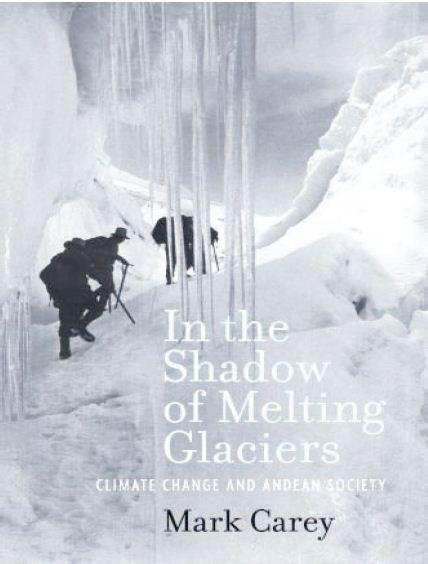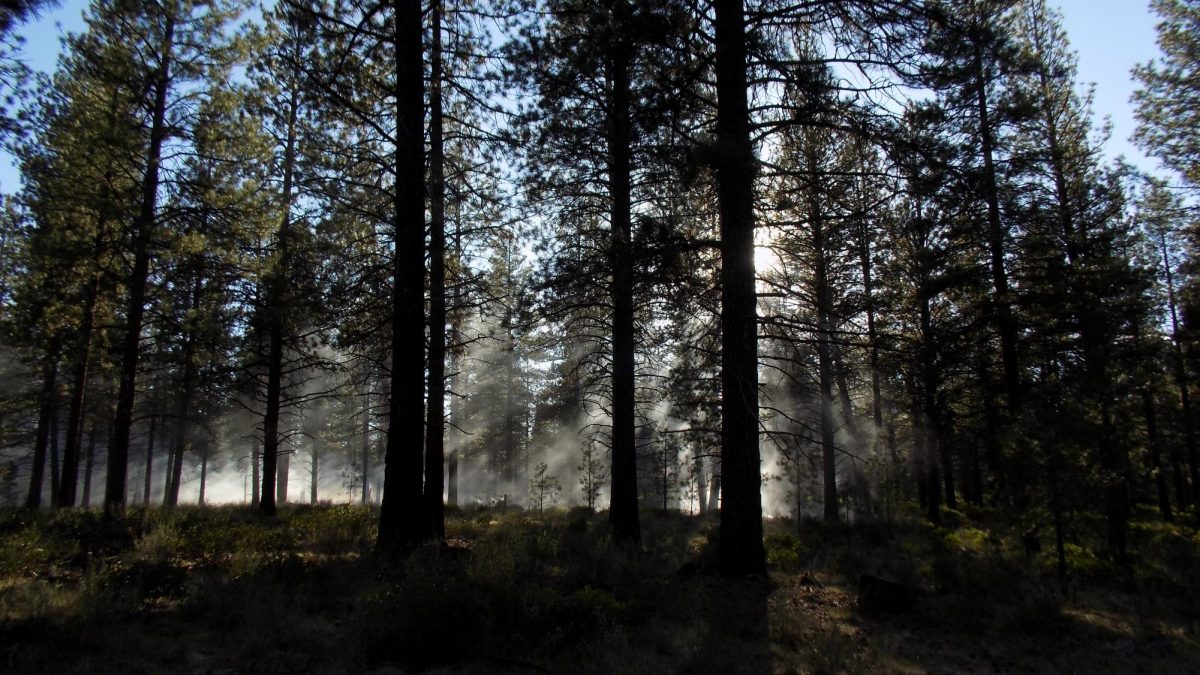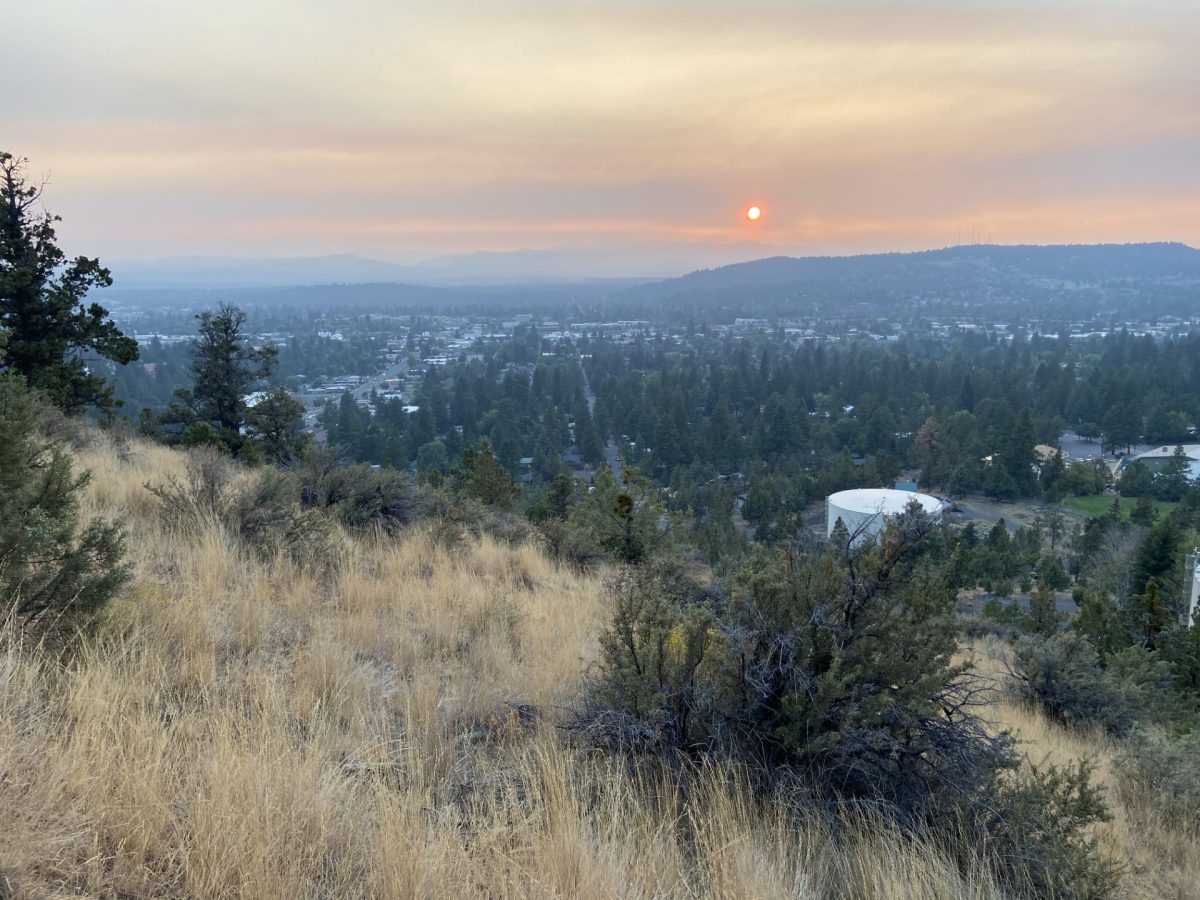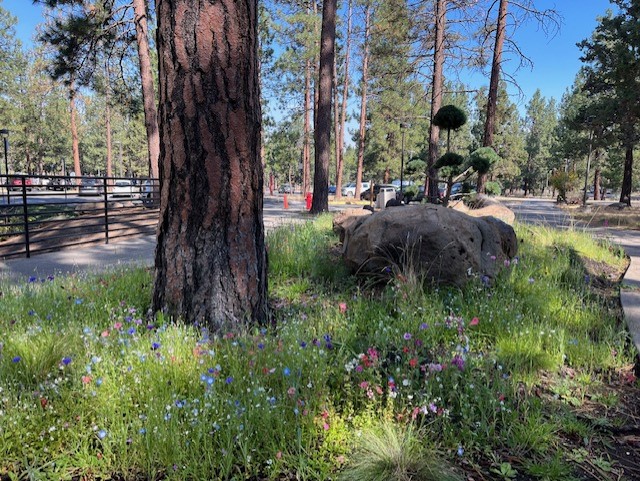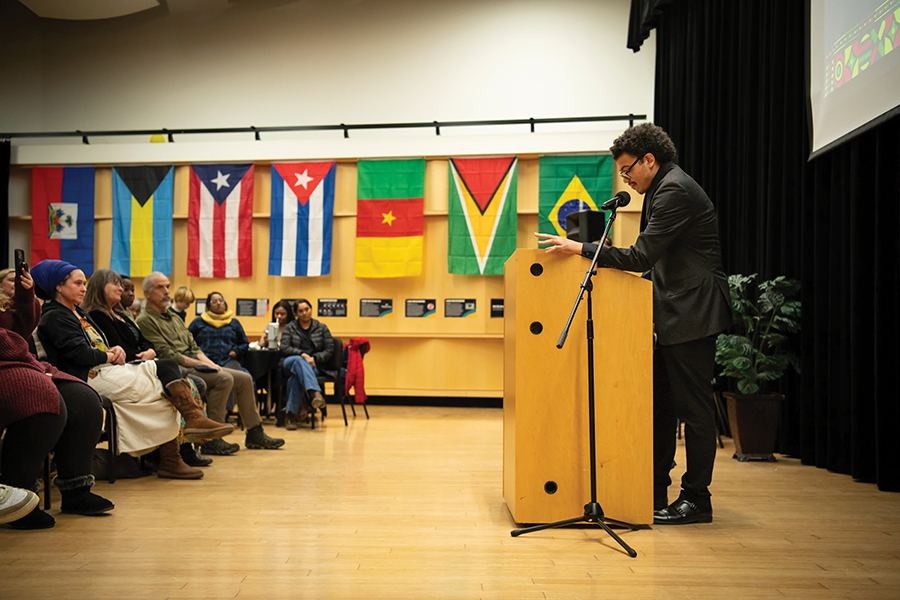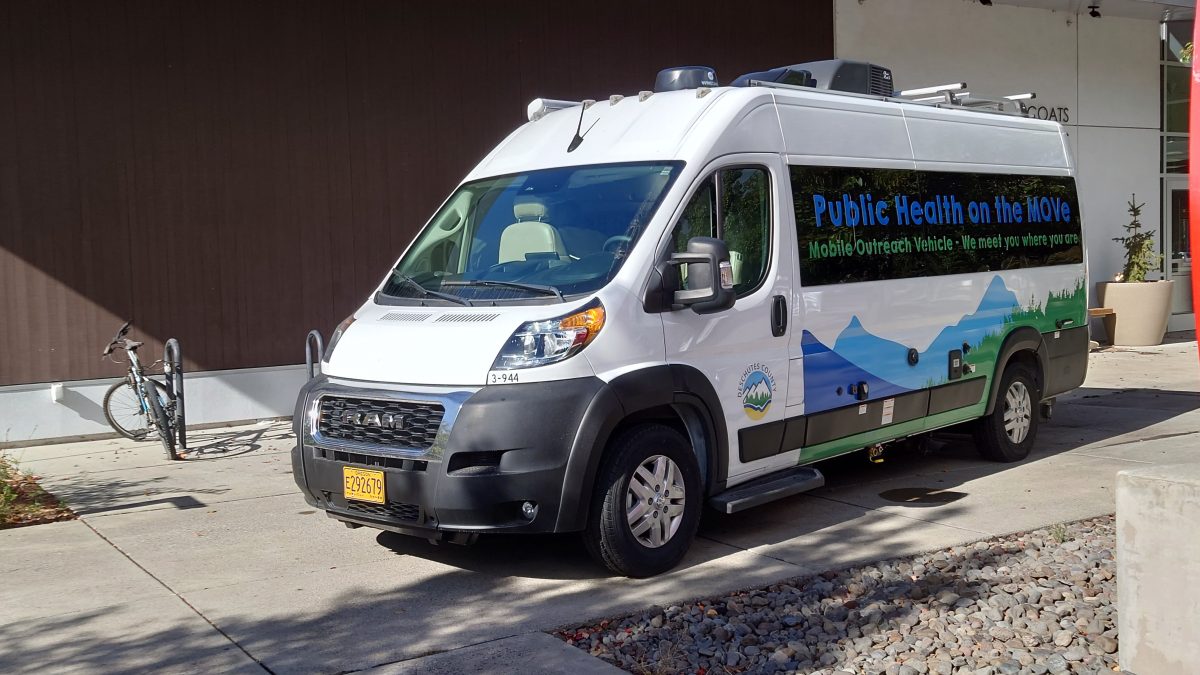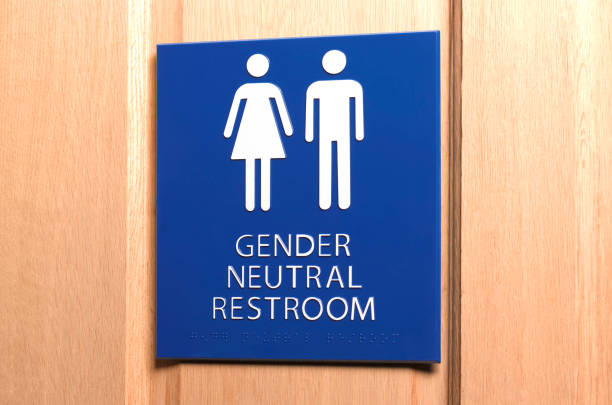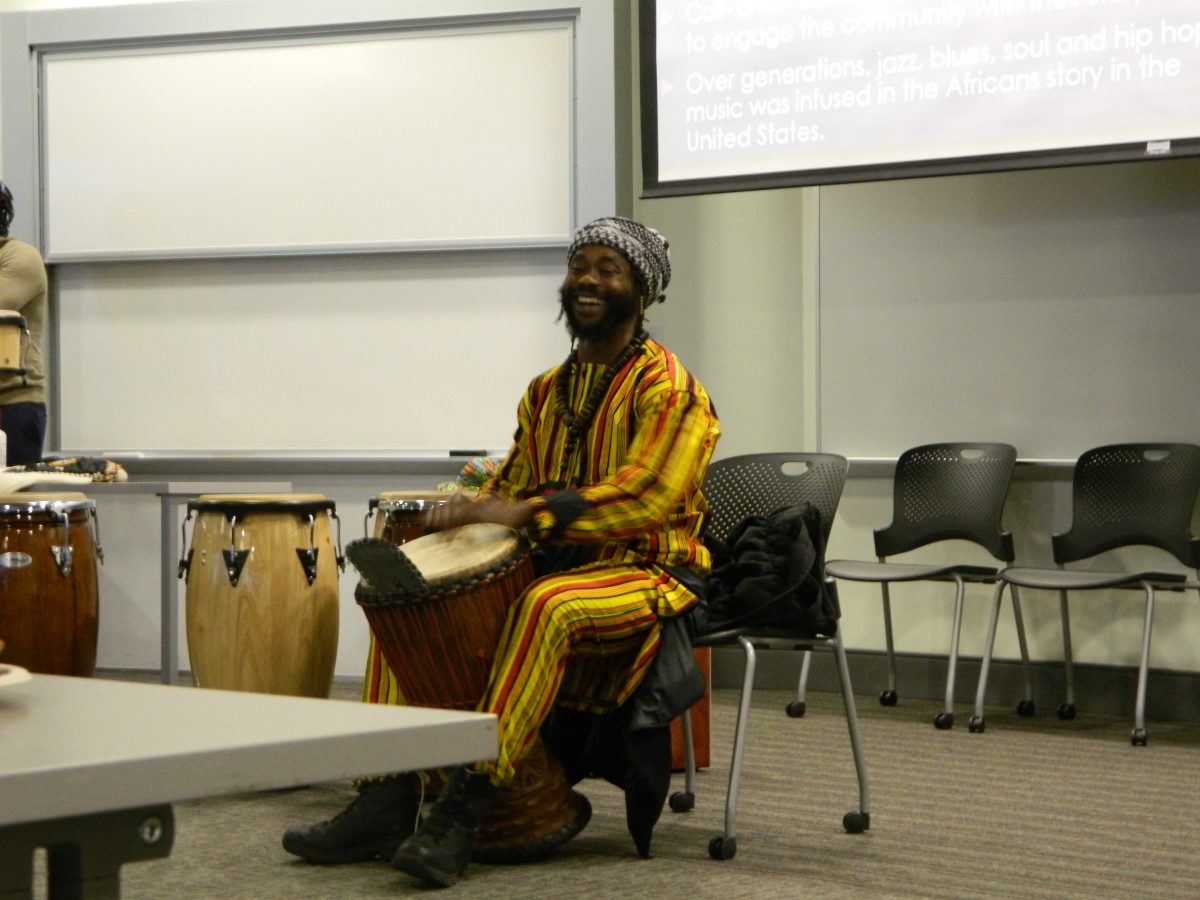“Think what it would be like if the Andes Glaciers were gone and we had millions and millions of hungry and thirsty southern neighbors, it would not be an easy thing to deal with.” R James Woolsey former CIA director 2011.
Mark Carey spoke to a full audience on receding glaciers and the impact on humanity. Carey, associate dean and associate professor of history at University of Oregon’s Robert D. Clark Honors College, visited Central Oregon Community College Bend campus on Oct. 16 to discuss his research.
Carey earned his Ph.D in history from the University of California, Davis, and held a Ciriacy-Wantrup Postdoctoral Fellowship in the Geography department at the University of California, Berkeley.
“As a historian there is a human story here,” Carey said. “I want to know how this affects peoples lives.”
Carey’s current research on glaciers focuses on the North Atlantic.
“The sinking of the Titanic brought worldwide attention to icebergs because many of the people on that ship were wealthy and famous people traveling from Europe to New York,” said Carey of the collision and sinking in 1912 of the famous ship.
So far, Carey’s work has revealed that after the sinking of the Titanic, The Ice Patrol and U.S. Coast Guard were founded to keep icebergs out of the shipping lanes. This was then enforced by blowing up icebergs, towing icebergs and drilling holes in the icebergs to install chemical agents to melt the icebergs from the inside out.
“The Military Hubris of the 1920’s, 1930’s and 1950’s was that they thought ice was stable.
Often they just made smaller icebergs that were more of a hazard to ships than the large ones they could see,” Carey said. “But ice was too dynamic, it melted and moved too fast and the projects were abandoned,” Carey said.
Carey’s current book ‘In the Shadow of Melting Glaciers’ examines climate change in Peru at a local level. Specifically the flooding and destruction of entire towns in Peru and the loss of life due to the rapid melting of the glaciers.
“The disparity in the way developed countries and undeveloped countries handle climate change and how it affects their people is vast,” Carey said. “The Glaciers are melting because the temperature around the world is rising.”
For more information about Dr Carey’s work visit honors.uoregon.edu/faculty/mark-Carey
D.R Kaufman | The Broadside
(Contact:[email protected])


